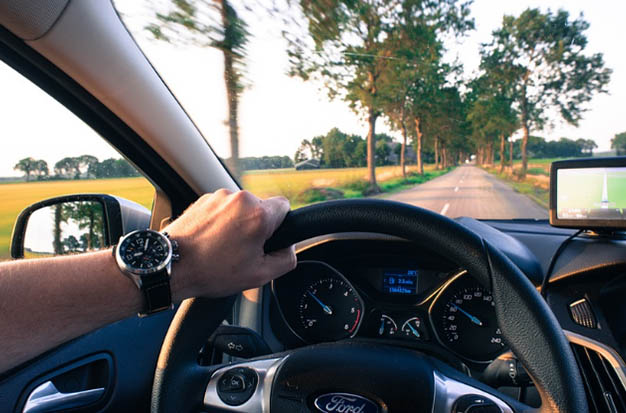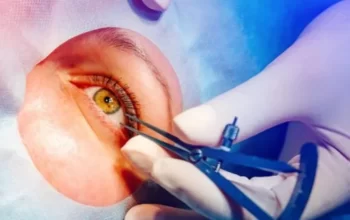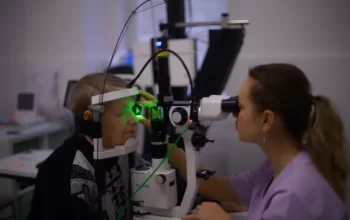
Prospective cataract surgery patients are almost always interested in finding out more about how much the procedure will cost and how long it will take them to recover. In light of this, I decided to dedicate this post to respond to a particular recovery query that people consistently seem to ask me: How long after cataract surgery can I drive again?
What Is A Cataract
Let’s first define a cataract to fully comprehend why you can’t drive right away and why healing can take several days.
You won’t be able to drive yourself home right away from cataract surgery because anesthesia is required. Instead, you will be given to someone you love, who will need to take you home to rest the rest of the day. In the past, a lot of people chose to take a cab home, but as of late, eye care facilities are now required to release patients into the care of a friend or relative. This allows the caregiver to stay with the patient and make sure there are no post-operative complications, however unlikely they may be.
Although the lens in your eye should be clear, over time it may become cloudy. When it first appears, you might not even notice it, and when you do, it might not even need immediate medical attention. However, if it gets too cloudy, the cataract makes your vision hazy and interferes with your daily activities.
Your eyes won’t be damaged by cataracts on their own. But when they begin to impact your daily activities, it’s time to see an ophthalmologist.
After Cataract Surgery, When Can You Drive?
Many factors can be taken into account when determining the answer to this question. Most people feel well enough to drive 24 to 48 hours after cataract surgery, but some people heal more quickly or more slowly than others.
As a general rule, you should avoid driving until after your ophthalmologist review appointment. Even if you feel at ease behind the wheel, your doctor can measure and evaluate your vision during this visit to make sure you meet the local driving vision standards.
Your vision won’t stabilize right away after your cataract surgery. The average person will find their vision has improved enough to drive safely much sooner than that. Complete stabilization can take 4 to 6 weeks. Your vision may become slightly blurry as the intraocular lens implant adjusts to its new location in the eye and the corneal incision heals. Driving may be uncomfortable because many patients also experience glare sensitivity and soreness or gritty eyes.
What Happens During Cataract Surgery
Since cataract surgery is an outpatient procedure, you will be awake throughout. In most cases, it takes an hour to start and finish. A local anesthetic injection around the eye or numbing eye drops may be administered to you.
The size of the incisions the eye surgeon needs to make depends on the type of surgery you receive. A lot of the time, they can make cuts that don’t need stitches. They use a variety of techniques to remove your cloudy lens after they’ve made the incision.
They take the lens out and swap it out for a synthetic one. Results produced by various lenses vary. Before the procedure, you will discuss all your options with your ophthalmologist.
If necessary, you’ll get stitches after the new lens is in. Otherwise, you’re done and the doctor can release you to whoever is providing you with transportation home.
Cataract Surgery Aftercare
It’s crucial to adhere to the ophthalmologist’s aftercare recommendations in full. Even though it’s a quick and routine procedure, there are still some risks involved. The majority of risks associated with cataract surgery are manageable, but with the right aftercare, the risks are typically reduced.
Any discomfort should go away within a few days as long as you’re following the eye doctor’s instructions and taking anything they have prescribed for you. There are a few potential complications to be aware of and contact the ophthalmologist immediately if they occur:
- Loss of vision
- Persistent discomfort (after using over-the-counter medication)
- Eyelid swelling or increased redness
- Flashing light or new floaters in your field of vision

What Are Some Reasons To Postpone Driving After Cataract Surgery?
Even if your doctor says it’s okay for you to get behind the wheel again, you should hold off until you feel completely at ease. For instance, you may also want to consider the following:
Do you have any swelling from the surgery? You might want to hold off on getting behind the wheel a little longer if you feel your vision is still not as clear as you’d like.
Do you require glasses or contact lenses to see clearly at a distance and up close? In that case, you might want to postpone until you get new glasses. A revised prescription will make it simpler to read dashboard gauges, your GPS, and road signs.
Do you react negatively to intense light? After cataract surgery, light sensitivity is typical, though typically transient. Darker sunglasses may make you feel more secure while driving.
Does your ability to perceive depth depend on how well each eye sees things? The majority of patients schedule their cataract operations a few weeks apart, performing the procedure on one eye at a time. With your treated eye than your untreated eye, you will be able to see more clearly in between surgeries.
This causes issues for some people with depth perception and their capacity to determine how close or far away objects are. You might not want to drive until both eyes have received treatment if this bothers you.
After Having Cataract Surgery, Can I Drive With My Old Glasses?
Once you’ve undergone both “rounds” of cataract surgery, your visual acuity will typically be very similar across both eyes. However, one eye might still require corrective lenses in between procedures.
Some people are tempted to “fix” their glasses by removing the lens that covers the newly treated eye. However, it might not be wise to drive while doing this. Before trying anything new, consult your doctor first (especially since you might break your glasses).
Driving should be avoided if there is a big difference in the clarity of your eyes. Ask your doctor for a new prescription for glasses to wear up until your second cataract surgery if the problem is too annoying to ignore.



